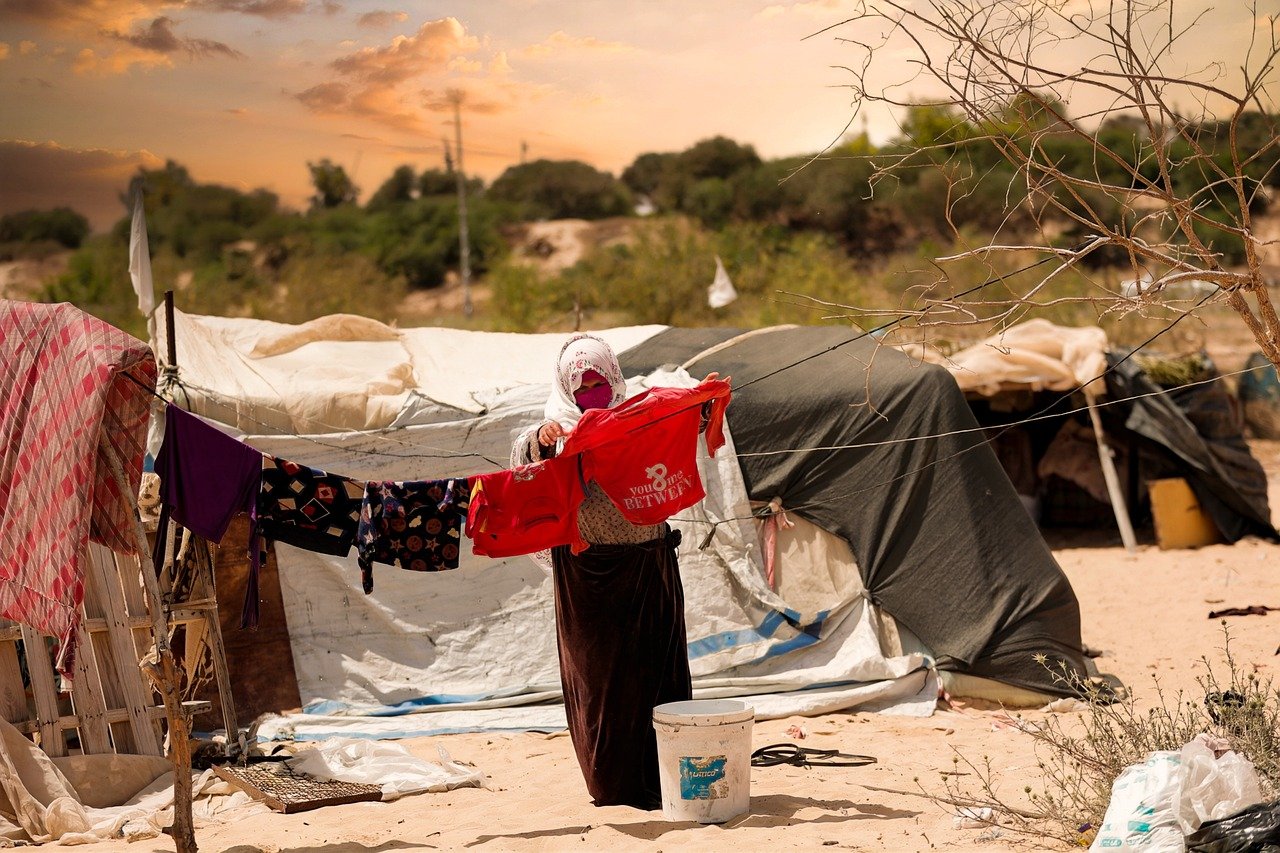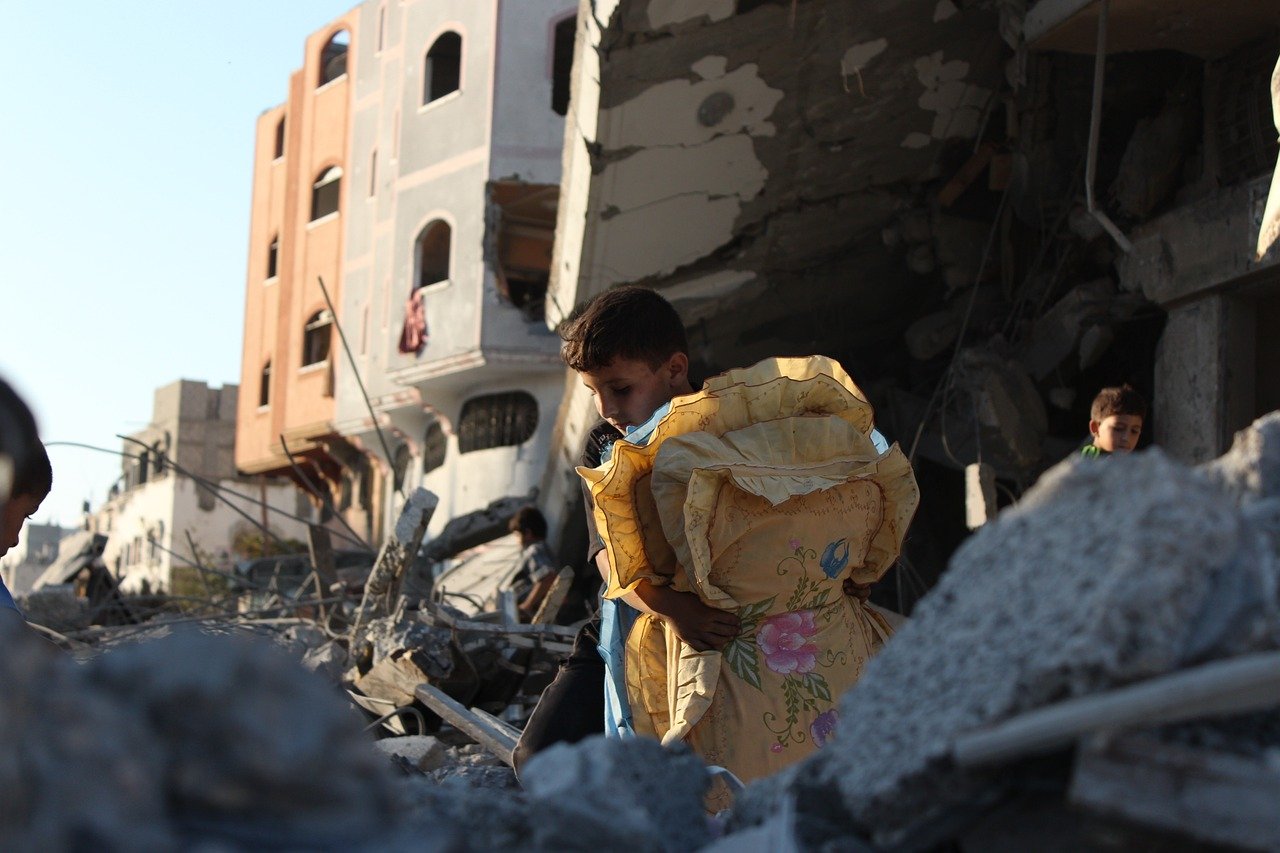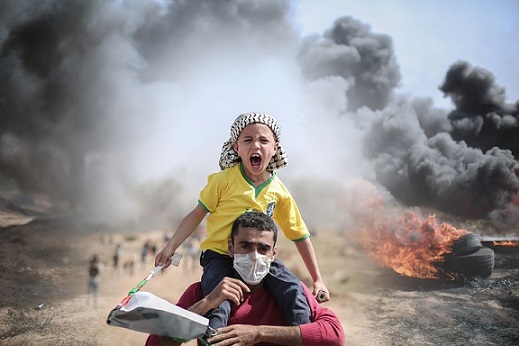At least 17,000 children in the Gaza Strip are alone or separated from their families (1% of the total displaced population) and suffer serious repercussions on their mental health as a result of the conflict. Against this backdrop, the existence of one of the agencies that provides the most aid to refugees is on the line.
 Elizabeth Borrego
Elizabeth Borrego
The figures come from the United Nations Children’s Fund (UNICEF), which makes it undeniable that the suspension of funding for the United Nations Relief and Works Agency for Palestine Refugees (UNRWA) today puts the largest political forum on the planet in a race against time at the risk of halting its operations in Gaza at the end of February. Considered the main humanitarian actor in the Gaza Strip, UNRWA serves the colossal humanitarian needs of more than two million people in the besieged enclave, with more than 3,000 employees on the ground.
However, the lack of funds could put an end to their work, following accusations by the Israeli authorities linking 12 of their employees to the actions of Hamas on October 7.
Following the release of the reports, the Agency’s main partners, including the United States, Canada, Australia and several European nations, announced a pause in their funding.
 The decision to suspend financial contributions poses a risk to the survival of the majority of the population in the enclave, according to UNRWA High Commissioner Philippe Lazzarini.
The decision to suspend financial contributions poses a risk to the survival of the majority of the population in the enclave, according to UNRWA High Commissioner Philippe Lazzarini.
“Their humanitarian conditions are worsening as the war continues and humanitarian access remains largely restricted,” the representative said in a statement.
Among other obstacles, Palestinians continue to suffer from mass displacement, overcrowding, lack of food and access to health services, spread of disease and internet outages. A few days ago, tens of thousands of people were forced to move south due to shelling and fighting in Khan Younis over the past week, Lazzarini said in a statement.
Added to this are more than 1.4 million people crammed into the southern governorate of Rafah, where most of them live in makeshift structures, tents or in the open air.

That border demarcation with Egypt has become a sea of people fleeing the bombardment, lamented Thomas White, UNRWA’s director of affairs in Gaza and the UN’s deputy humanitarian coordinator for the occupied Palestinian territory. Most of those fleeing Khan Younis have already been displaced several times and many are forced to leave the agency’s largest shelter, the city’s Training Centre.
Meanwhile, UNRWA staff, forced to flee their homes, continue to deliver food and tents to the newly displaced around them. “It’s hard to imagine Gazans surviving this crisis without UNRWA,” White said of the body considered the backbone of humanitarian aid operations. PL
(Translated by Cristina Popa – Email: gcpopa83@gmail.com) – Photos: Pixabay












.jpg)












